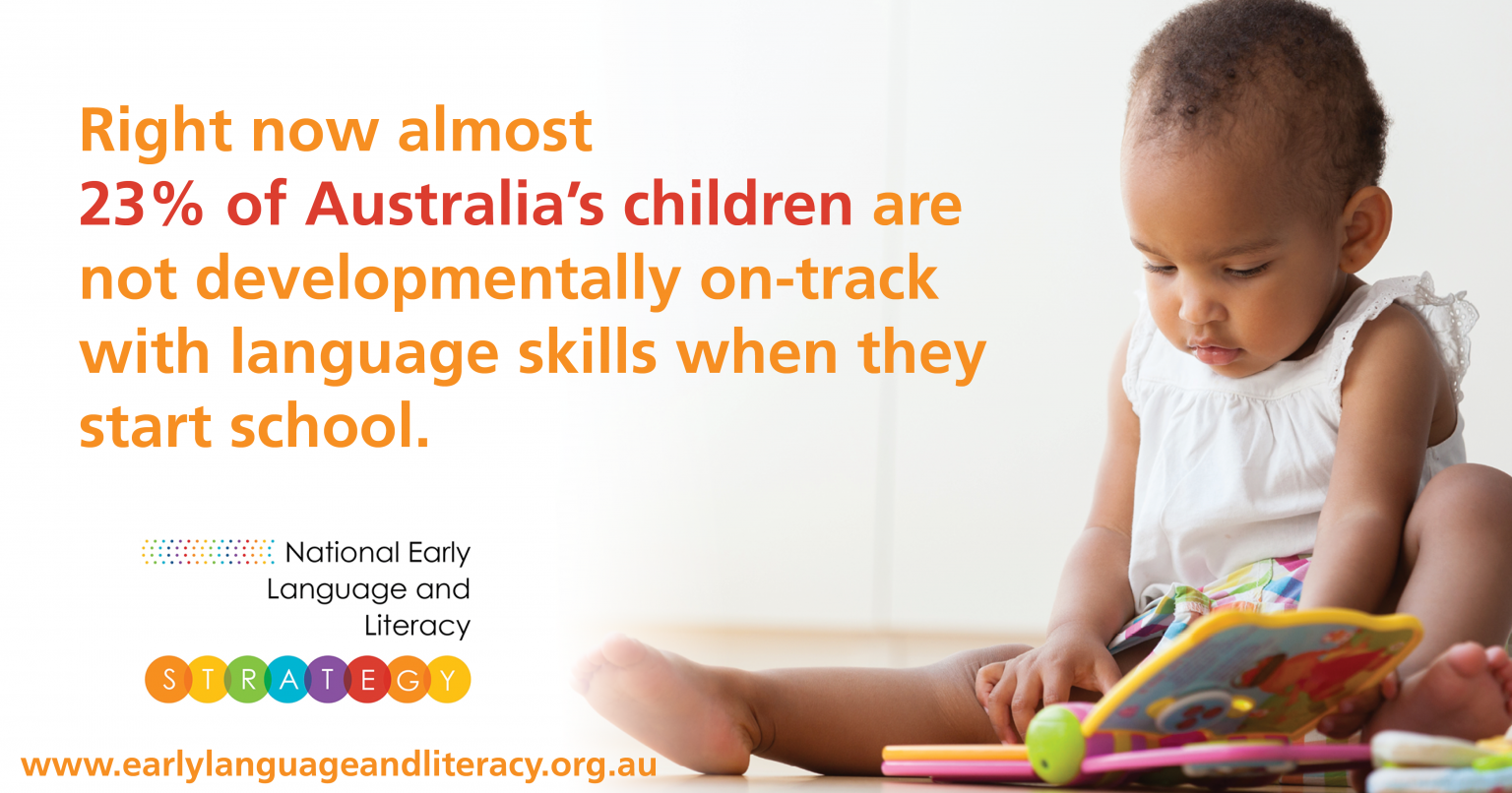National strategy needed to support children’s language literacy in the years before school

A national coalition of Australia’s peak early language and literacy bodies is calling on the Australian Government to adopt a national strategy to ensure Australian children get the best start in life by having solid language and literacy support.
The statement has been released today in honour of International Literacy Day, with the National Early Language & Literacy Coalition (NELLC) using Australian Early Development Census (AEDC) data to call on policy makers to make the development of children’s language and literacy skills a national priority.
“Research show that children who start school behind their peers often stay behind,”
Said NELLC Chair Sue McKerracher, highlighting specifically that one in five children begin school in Australia developmentally behind their peers when it comes to language.
Language and literacy expert from La Trobe University Associate Professor Tanya Serryagreed, stating that the risk of having difficulties learning to read is six times greater for children who haven’t met their language milestones before they start school and that many children remain behind throughout their school years and beyond as a result.
Recent studies show that 44 per cent of Australian adults don’t have the sufficient literacy skills they need to cope with the demands of everyday life and work.
Unlike other major western countries such as the US, UK and Canada, Australia does not have a national early language and literacy strategy, supported by the state and territory government, in place for children aged from birth to five years.
“All Australian children, from all walks of life and from all postcodes, deserve equity of access to quality early years learning environments that include and celebrate their families, communities, home languages, their cultures and their uniqueness,” Professor Tom Calma, co-chair of the Australian Literacy and Numeracy Foundation has said.
“The pre-schoolers of today are the youth and leadership of our future. Every parent wants their children and the children of Australia to be literate, well educated and great communicators. They want them to realise their full potential. A coordinated national strategy will create the systemic cohesion necessary for every child to benefit during those sensitive formative years before entering formal schooling,” he added.
NELLC, a body of ten key organisations, has spent the past three years working with the Ian Potter Foundation to develop a proposed national strategy that they want the government to review and prioritise.
The proposed strategy sets out the scale of the issue; describes what is happening on the ground, in different communities, and puts forward a framework for action. It is condensed into four essentia priority areas, namely:
- family support within communities;
- early education and transitions;
- specialist support; and,
- knowledge production and dissemination.
NELLC will now lobby Commonwealth, state and territory governments to adopt this proposal and call on all educators, parents, and community members to add their voice and lend their support by getting behind the initiative and signing the NELLC petition.
The full strategy will be available from today on a specialised website. To access the strategy when made available please see here.
Popular

Practice
Provider
Quality
Research
Workforce
New activity booklet supports everyday conversations to keep children safe
2025-07-10 09:00:16
by Fiona Alston

Quality
Practice
Provider
Research
Workforce
Honouring the quiet magic of early childhood
2025-07-11 09:15:00
by Fiona Alston

Quality
Practice
Provider
Workforce
Reclaiming Joy: Why connection, curiosity and care still matter in early childhood education
2025-07-09 10:00:07
by Fiona Alston












